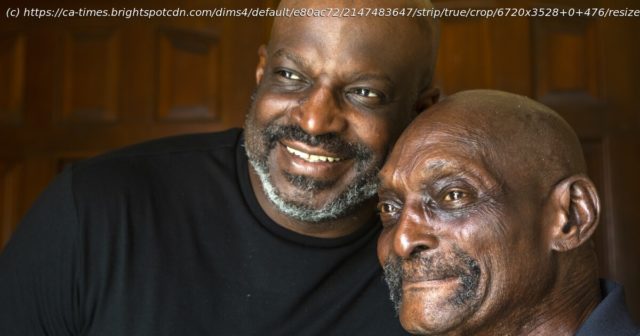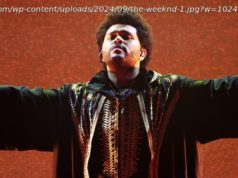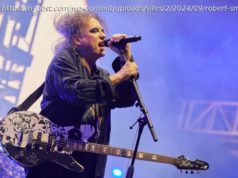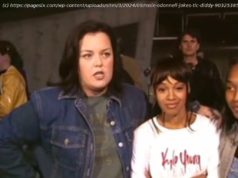A son finally sees a side of his father he has heard about for years: rock ’n’ roll singer
I’d seen pictures from back then, lots of times. Four handsome Black men in flashy suits crooning a song with showbiz flair and joy in their eyes. But those glossy prints that hung on the walls and lived in our photo albums hadn’t prepared me for what it would be like to see and hear them in action. A few years ago, my family received a videotape copy of an unaired episode of the 1960s music show “Shindig!” When I was told what was on it, I popped it into my parent’s last remaining VCR and hit fast forward. I was searching for the moment when L.A. radio personality Jimmy O’Neill introduced the next act performing a new dance called “Jamaica Ska” and a song with the same title.
“And now, here to show you how to do it are the great Hollywood All Stars and the Shindig! Dancers!”
I watched the foursome take the stage, and my eyes immediately locked on this one cool cat singing and dancing his heart out. That guy, center right, was my dad, Robert Meeks Jr. He was 24 years old. Here he was in this whole other world we’d heard about only through his stories. Here was this other Robert Meeks, circa 1964 — long before I was born — surging to life in grainy black and white. I rewound the tape and played it again and again while my dad sat on the sofa, beaming the entire time. This pilot episode, shot months before the series would launch its 16-month run in September 1964, featured the Righteous Brothers and a performance by the unparalleled Little Richard, someone my father said he knew back in the days when our family in Nashville would host Black entertainers. For years, I’d been told by my dad, rather matter-of-factly, that his singing group had performed on a TV show that never aired. But watching his amazing performance really got my attention — and raised all kinds of questions. I wanted to document what it must have been like for my father to be a Black entertainer in the ’50s and ’60s, striving to create and perform during a time when America was being called upon to reckon with civil rights. At the start of 2020, when we started to see a steady rise in COVID-19 cases in the U.S., my father was scheduled to have surgery to repair a nerve that severely limited his mobility. For an 80-year-old man, the timing of going into the hospital and having an extended stay in another facility to recuperate raised concerns for our family. I was rattled when I thought about how I’d taken our regular Sunday dinners together for granted, that there was still so much I didn’t know about him. I couldn’t stop thinking about the things we rarely talked about and the questions I hadn’t asked. Fortunately, his surgery went well. I took any afternoon or evening I had free to visit during his recovery. I started to push him for details about his days before I was born. And I came to understand that preserving these stories was an imperative I couldn’t ignore. Our visits usually started like this:
“How’re you doing?”
“Doing better, Son.”
“That’s great! So hey, can I ask you again about when you did shows in the ‘50s and ‘60s?”
The group that would become the Hollywood All Stars was known by a few other names in its early days in Nashville. For a while, “The Classics” gained traction as the four men performed at a handful of neighboring Black venues in the 1950s. The group consisted of my uncles Bruce and Louis Meeks; my dad’s best friend, Mr. Reginald Cornell Atkins; and my father, whom they called Sonny but nicknamed “Lead.” (Dad was the lead singer with his brother Bruce, and he was also the oldest of the three boys.






